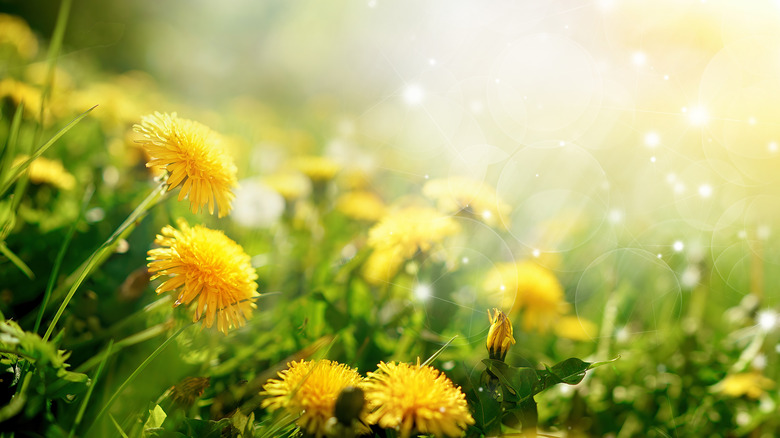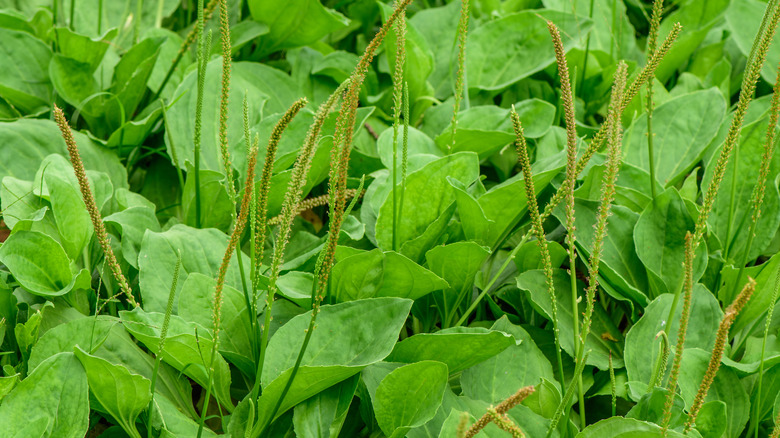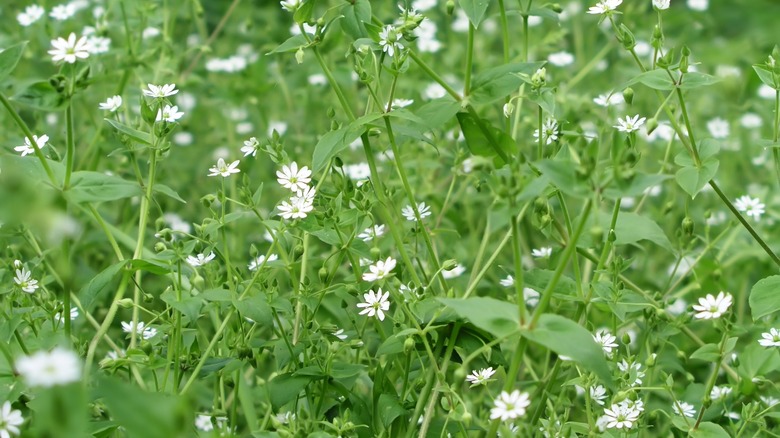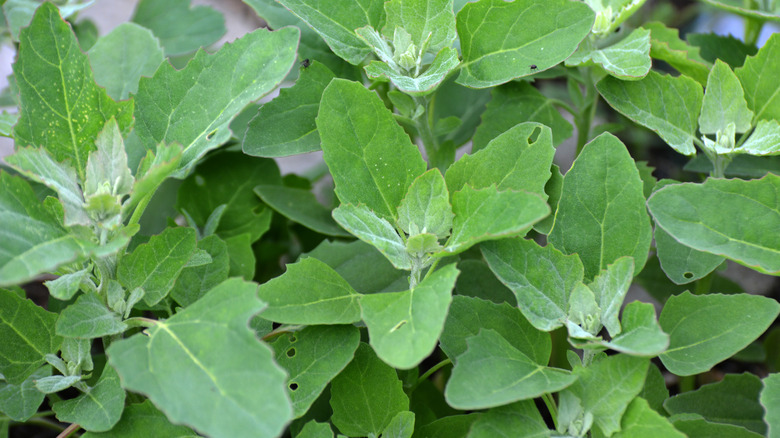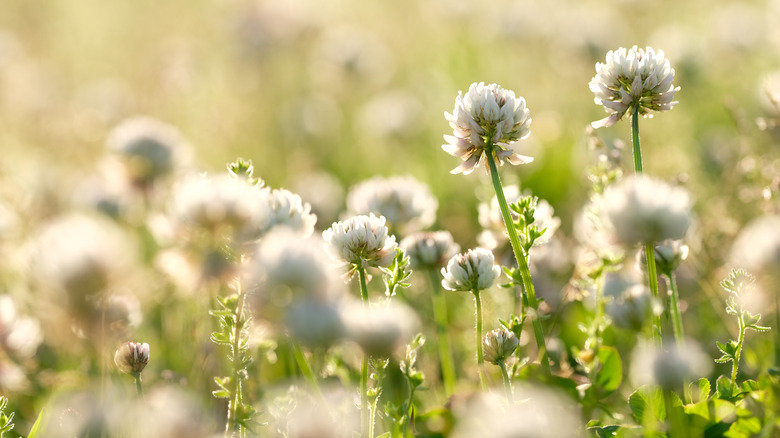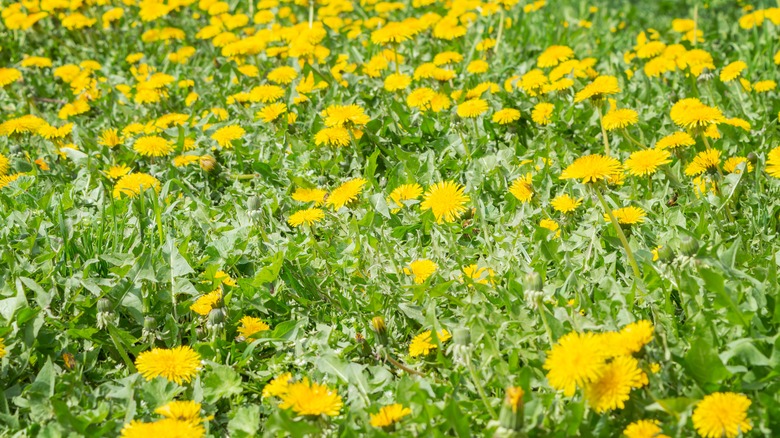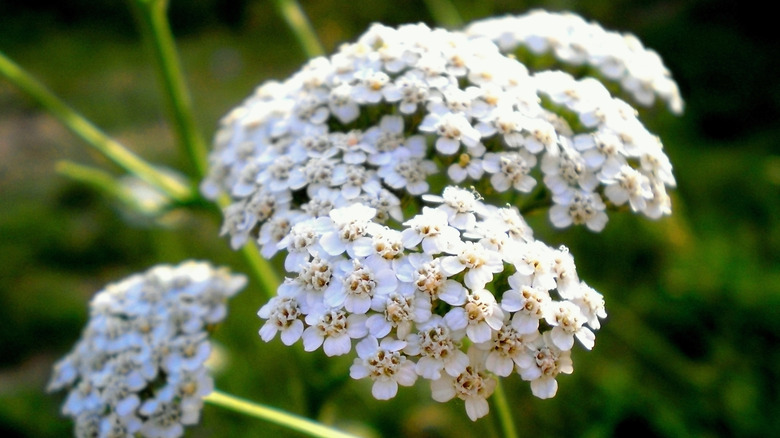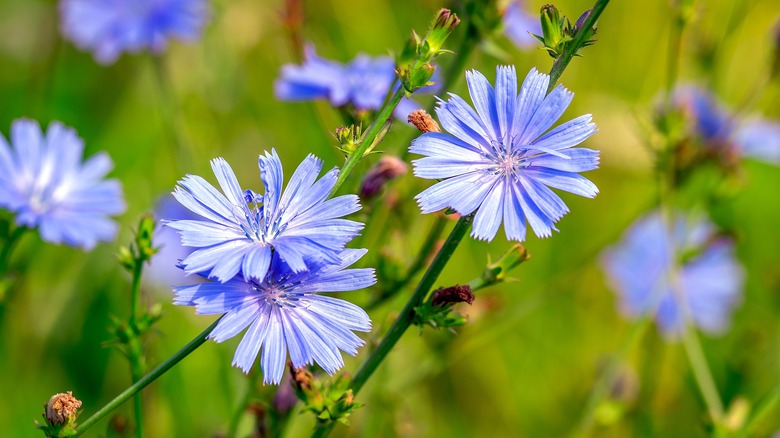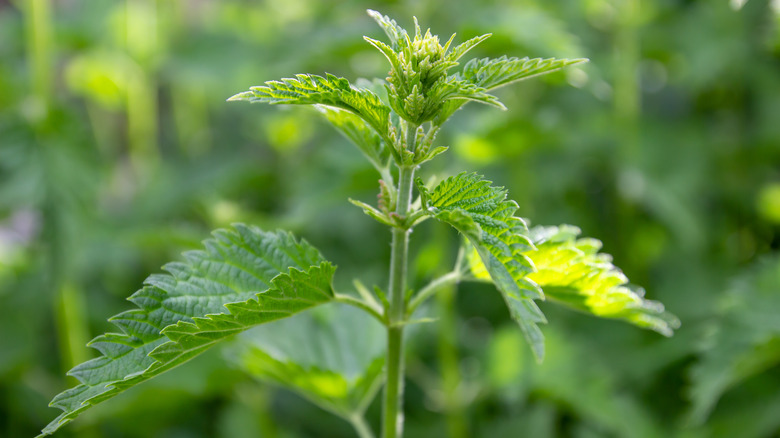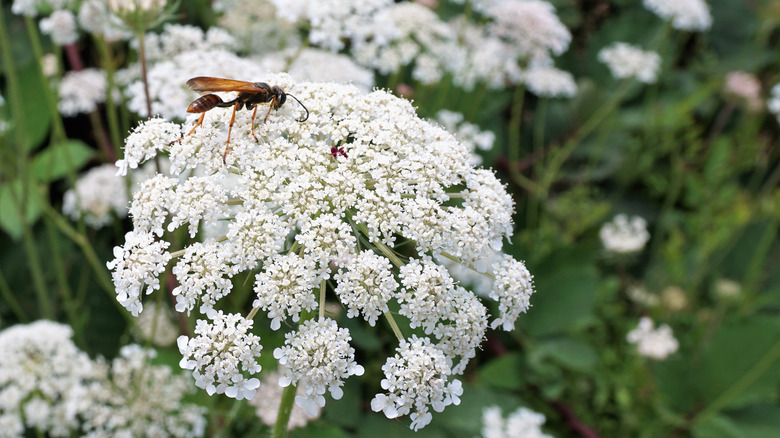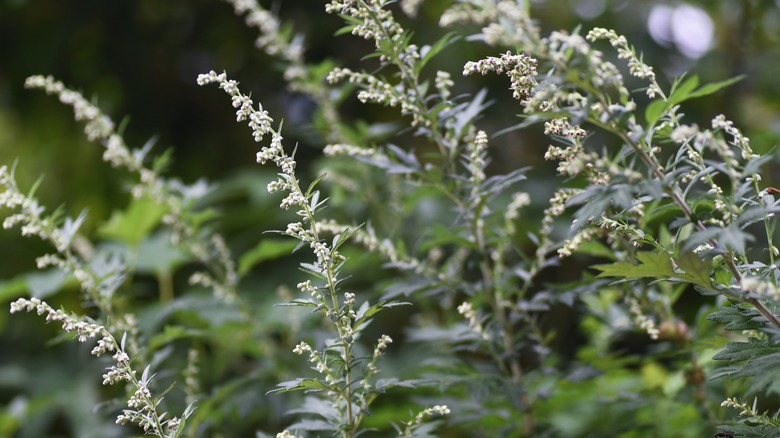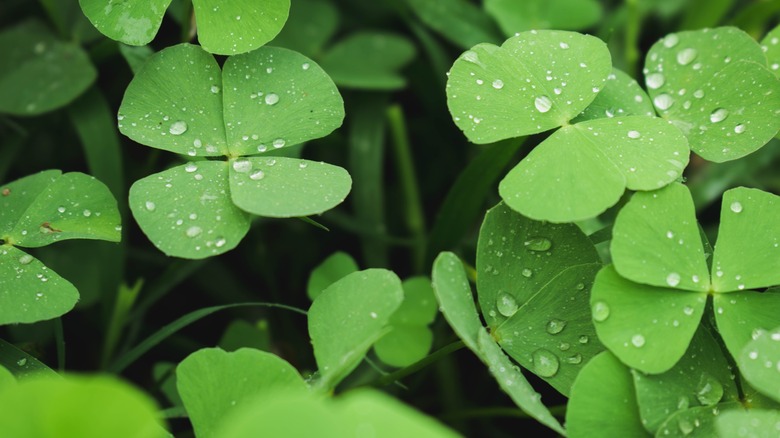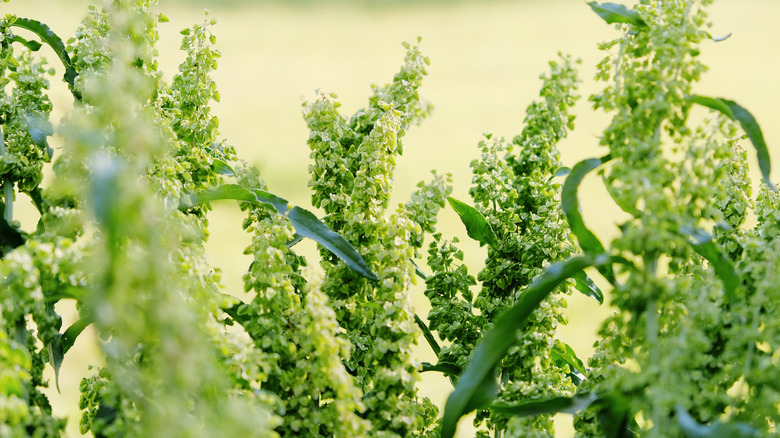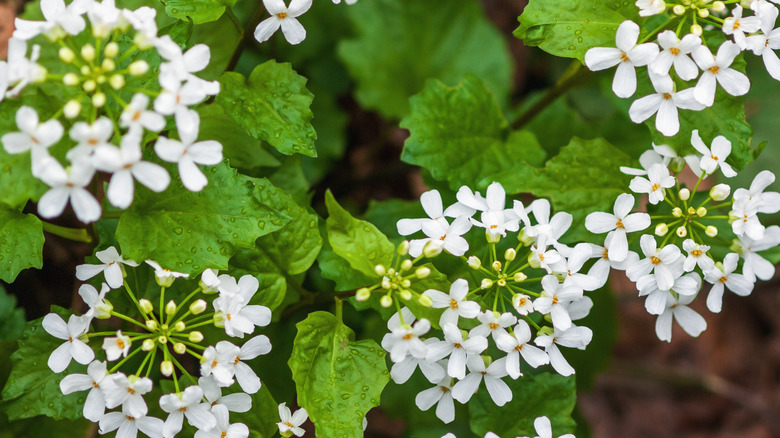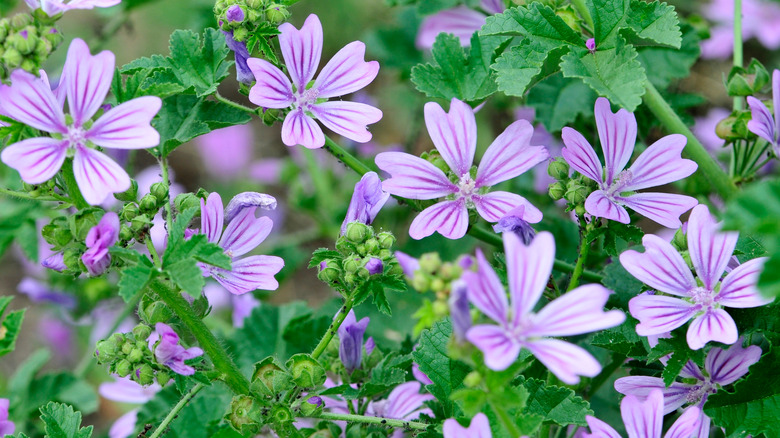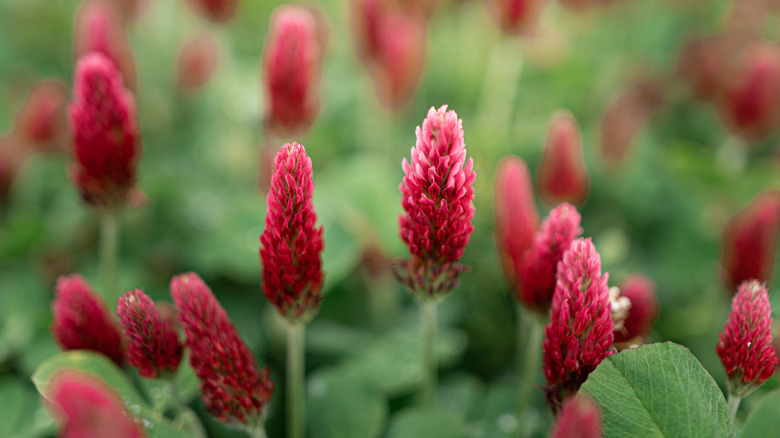15 Weeds That Are Actually Good To Grow
Certain plants growing in your yard and garden can be quite obnoxious to deal with. Although weeds are notorious for being harmful to the landscape of your home, there are certain varieties that are good to grow. Portland Pet Stores says although weeds have been commonly referred to as an invasive species due to their ability to grow all over your yard, some actually provide a plethora of benefits that should be acquired instead of mowed down. There are even certain weeds you can include in your daily diet. Weeds are also capable of keeping your soil moist and healthy, which welcomes more birds by providing a healthy dose of insects attracted to these types of conditions.
So, when it comes to caring for your lawn, be sure to leave behind a decent amount of weeds. There are many more benefits depending on the type of weed, and they may be able to help create the healthy lawn you've been striving for. It can be alarming to suddenly see plants you didn't intend to grow, but some surprises can be beneficial if well researched.
Broadleaf plantain
Broadleaf plantain (plantago major) didn't arrive in the U.S. until the colonists made their way here, bringing along vegetation previously not available, according to Tenth Acre Garden. This weed can bring nutrients to your property by providing elements like calcium, sulfur, magnesium, manganese, iron, and silicon. You can also eat this plant to obtain certain medical benefits, such as boosting your immune system and preventing inflammation and tumors, according to West Virginia University. It can also create healthy soil if allowed to go through its natural life cycle, but gardeners should trim back its leaves to keep their garden looking well kept.
Chickweed
Chickweed (stellaria media) is typically present in soil that has been dug through for projects, such as garden beds, according to Tenth Acre Garden. Not only does this weed provide nutrients, such as potassium and phosphorus, but pollinators are also attracted to it, which is beneficial to a garden full of flowers and other types of vegetation. The roots should be kept in the soil even if you harvest the plant, as it will help keep the soil healthy even after the plant dies.
Lamb's quarters
Lamb's quarters (chenopodium album) is a great weed to keep for those who live in a home where old farm fields are present, according to Tenth Acre Garden. Typically, farms where a surplus of chemical fertilizers are used can benefit from a weed that will bring life back to the soil. This weed is also edible and healthy when grown properly, which in turn can be sold to nearby chefs who desire to serve its nutritional properties. Once this plant is introduced to the farm, it is able to produce over 75,000 seeds.
White clover
The White clover (trifolium repens) appears when your soil has low levels of nitrogen, according to Tenth Acre Garden. They are typically found in dry fields and lawns with clay-like soil underneath. This can occur as a result of frequently mowing your lawn, which in turn lowers the level of nitrogen in your soil. Not only does this plant raise the level of nitrogen, but it also attracts ladybugs and other pollinators your lawn may desperately need. White clover permanently resides in orchard areas, where it guards soil and fruit tree roots.
Dandelion
Dandelion (taraxacum officinale) is most likely the weed you've seen the most. Not only in residential areas but also commercial. Although people constantly remove this weed, it may actually be the most beneficial to have, according to Tenth Acre Garden. Dandelions provide many nutrients to your soil, such as potassium, calcium, copper, and more. The leaves, roots, and flowers are also healthy to consume. The Cleveland Clinic says the different components of dandelion can manage blood pressure, reduce inflammation, and more.
Common yarrow
The Common yarrow (achillea millefolium) helps improve the health of your soil because its roots dive deep, which provides potassium, phosphorus, and copper, according to Dian Farmer. It's also used as a living mulch to cover the top of the soil to increase its health, as well as help you produce the fruit you're growing. This weed is also great at attracting bees and ladybugs, while it also repels other undesirable pests with its strong smell.
Chicory
Although a weed, chicory (cichorium intybus) is a beautiful plant that blossoms with lovely blue flowers, according to Dian Farmer. An interesting fact is that the root of this weed can substitute the typical coffee you drink to limit your caffeine consumption. It's also a great way to create an elixir to cure upset stomachs while also improving digestion problems. Chicory may not be as aggressive as other weeds, but the wind spreads its seeds around, causing this weed to be planted in other areas, according to Bee Culture.
Stinging nettle
Although the name sounds quite frightening, the stinging nettle (urtica dioica) has quite a few benefits, according to Dian Farmer. If you desire healthier soil, make sure not to pull these suckers out. This weed has the capability to attract insects beneficial to your lawn and ensure your soil is kept moist. Mountain Sinai says stinging nettle is used as a form of medication for all types of issues, including sore joints, eczema, arthritis, anemia, urinary tract infection, insect bites, and more.
Queen Anne's lace
The Queen Anne's lace (daucus carota), also known as wild carrot, are typically discovered by the roadside or in meadows and gardens, according to Common Sense Home. If you're a fan of butterflies, this weed can also attract plenty of black swallowtail butterflies for you and your garden to enjoy. Surprisingly, for centuries — and even now — Queen Anne's Lace has been used as a form of birth control and has been previously prescribed by doctors as a way to end an early pregnancy. Before using this, Daily Kos advises speaking to a herbalist.
Mugwort
Mugwort (artemisia vulgaris) is actually a great benefit for your garden, according to Dian Farmer. It's able to absorb and rid your garden of heavy metals while also preventing erosion and providing the soil with the nutrients that may not be present. While a bit smelly, mugwort can also fertilize and add more moisture to your soil, and attract insects beneficial to your garden, while also repelling the pests that have persistently been attacking it.
Clover
Although clover (trifolium) has been labeled as a weed, many farmers and gardeners have recently picked up on its benefits, according to One Earth. It is able to improve the nitrogen in your soil, which in turn produces organic compounds to nearby plants' nourishment. It's also a great weed for farmers who plant rye, oat, wheat, and more. It's a weed that can survive any weather condition and is edible for chickens, geese, and birds.
Curly dock
Curly dock (rumex crispus) is best known as an effective healing plant, according to Balcony Garden Web. It's helpful in aiding constipation, fever, gallbladder issues, and swollen lymph nodes. It quickly spread from Europe to Asia, providing thousands with its natural remedy abilities. Curly dock commonly grows in soil that hasn't been maintained, like in a wasteland or along the road, according to HerbaZest. This weed prefers to grow in a cool, wet environment and prospers in deep and moist clay soil.
Garlic mustard
Garlic mustard (alliaria petiolata) has been designated as an invasive species in the U.S., according to Balcony Garden Web. However, many can enjoy the plethora of health benefits it provides. It can help manage your weight, lower your cholesterol levels, and ensure you have a healthy immune system. The seedlings of this weed are typically seen from February to early March, and its rosettes form in the middle of the summer.
Common mallow
Common mallow (malva neglecta) is known to be a part of a large group of weeds in the malvaceae family, according to Balcony Garden Web. This weed has high levels of mucilage, which in turn can help you cure inflammation in your urinary, digestive, or respiratory systems. It can also help renew your cells and increase your immunity. Common mallow is initially from Europe, Asia, and Northern Australia but can also be found in the U.S, according to Edible Wild Food. In the U.S., It is found in lawns, gardens, along the road, and in other areas that are not well maintained.
Red clover
Red clover (trifolium pratense) is known to produce a pleasant energy while also providing medical benefits, according to Balcony Garden Web. This weed can help prevent cardiovascular diseases and can help limit the effects of menopause. It's also a pretty plant to have in your garden because it produces a pink and red color, but it can also keep your garden healthy, according to Epic Gardening. Red clover can be used as a cover crop that improves soil and keeps pests away. It can also attract pollinators such as butterflies, bees, and hummingbirds.
